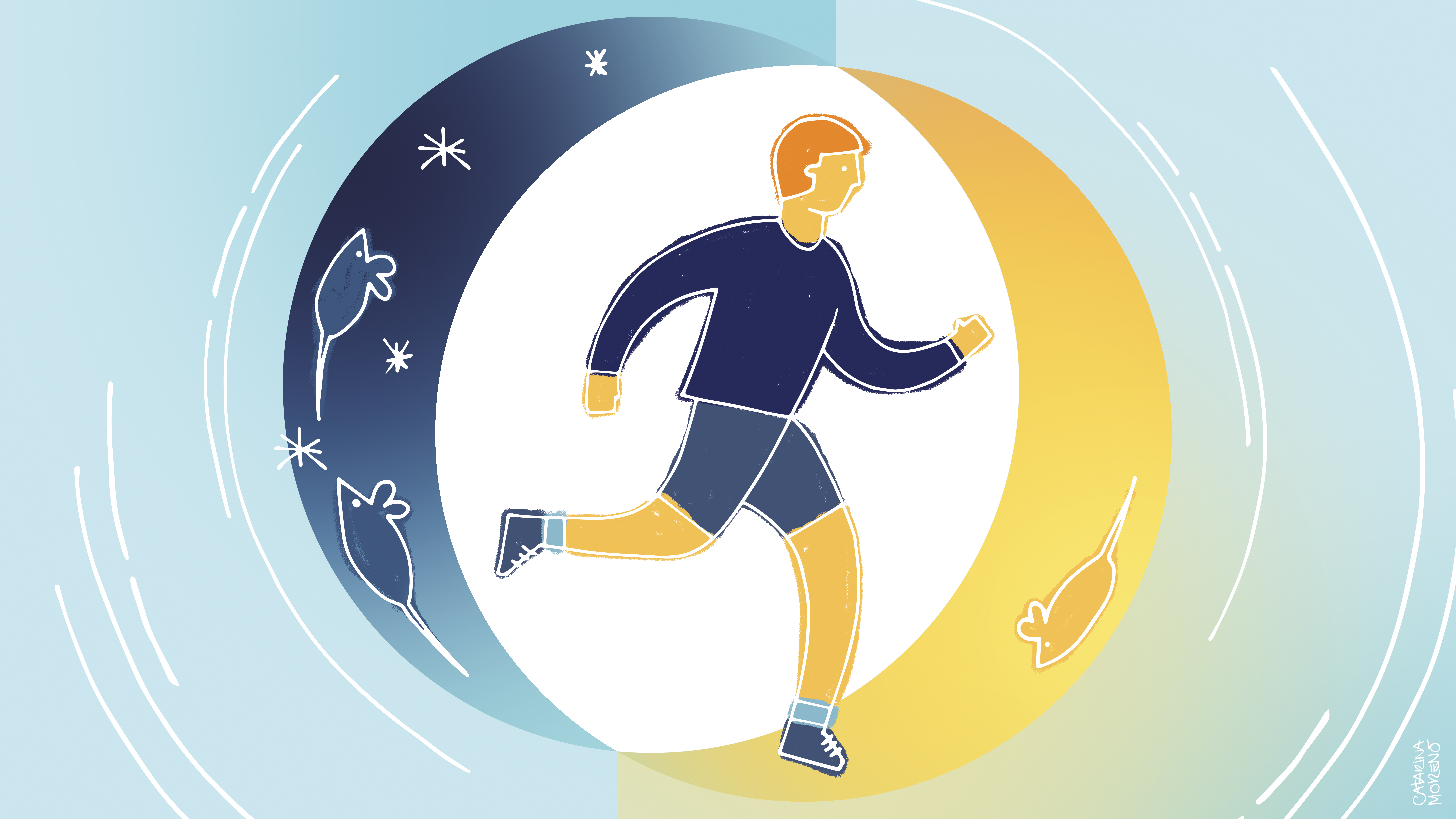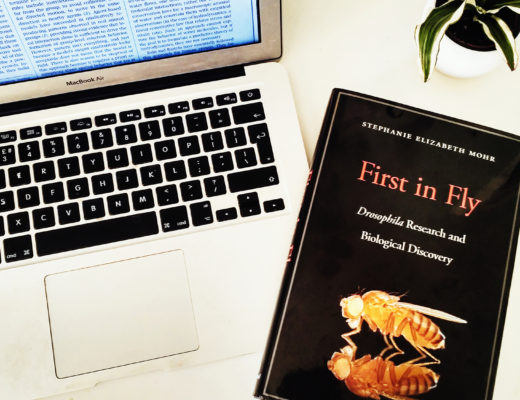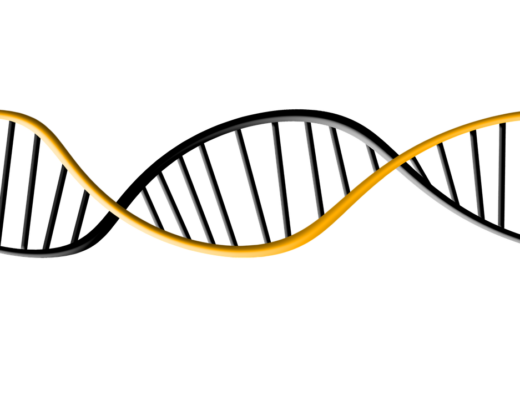Illustration by Catarina Moreno
Some people swear by the benefits of working out in the morning while others prefer exercising in the evening, but is there a better time to exercise? New research shows that mice and humans perform better when they exercise later in the day- but we shouldn’t change our workout routine just yet.
Our body clocks control many biological functions besides our sleeping patterns, including hormone release, cell regeneration, and immune responses. These ‘circadian’ clocks drive the production of many molecules in our bodies in a predictable pattern over a 24h cycle. Could these internal circadian rhythms also control how our body responds to exercise?
A recent study published in Cell Metabolism and led by Gad Asher, from the Weizmann Institute of Science, tested the physical performance of mice running on treadmills at different times of the day. As mice are nocturnal, their biological day (active phase) starts with darkness – opposite to humans. The researchers found that mice run for much longer at certain times of the day, but this depended on the intensity of the exercise. For very intense exercise, mice performed better in the early active phase (equivalent to morning in humans), but for moderate and low-intensity exercise they did better later in the day (evening for humans). So if mice were humans, evenings would be a better time to workout.
To make sure these differences in exercise performance really depend on the circadian clock, the research team repeated the treadmill experiments with genetically engineered mice lacking a crucial clock gene called period. As these mice have a defective body clock, they should in theory run for roughly the same amount time regardless of the time of the day- and this is exactly what the researchers found.
But because mice aren’t people, Asher’s team also tested healthy adult men on treadmills (not spinning though). It turns out that just like most of the mice, humans can run for longer in the evening. But why? Physiological analyses showed that men exercising in the evening had lower heart rates and consumed less oxygen, even though their body temperature was higher. In other words, their bodies were using less fuel to perform the same amount of effort- they were more efficient.
Why does time of the day influence exercise performance?
Asher and colleagues knew from previous studies that circadian rhythms control metabolism to some extent, so they suspected that metabolic molecules (called ‘metabolites’) produced at specific times of the day might be responsible for the differences in exercise performance they observed in mice.
To test their hypothesis, the team measured the amount of metabolites produced in muscle tissue during exercise. They found that mice running on the treadmill in the evening produced more ZMP, a metabolite involved in replenishing energy to cells. ZMP is a very similar molecule to a famous performance-enhancing drug used by cycling athletes. The drug (SR9009) was banned in 2008 after a study showed that mice injected with ZMP could run for much longer than normal mice.
Not only we show which metabolic pathway was activated differentially between morning and evening upon exercise, we also found this metabolite that is highly interesting because it improves exercise performance in both mice and humans.
Another study published in the same issue of Cell Metabolism, led by Paolo Sassone-Corsi at the University of California, looked at how energy is produced and used in muscles during exercise at different times of the day. They found that in mice exercising early, muscle cells switch to a ‘plan B’ metabolic process called glycolysis, which uses alternative molecules to produce energy. Normally, cells only use glycolysis during intense exercise, when oxygen and sugar levels are low, but Sassone-Corsi now show that in the morning muscle cells switch to this energy-producing process regardless of exercise intensity.
Early bird or night owl?
But before you start cancelling your morning yoga class, Asher warns that more studies are needed to confirm these results and figure out what really is the best time to exercise.
“Humans aren’t mice and mice aren’t human but there are several metabolic pathways that are common – so it’s speculation but it’s a good basis that some of them are relevant”.
Age and gender are important factors that need to be tested, since the study in humans was conducted only in young men. There’s also huge variability in each individual circadian rhythm, or chronotype. Asher believes the best time to exercise might need to be adjusted depending on whether you’re an early bird or a nigh owl. And for those exercising to lose weight, these studies aren’t really helpful. Asher concludes “The study measures exercise performance […], it doesn’t mean that if you run in the evening you will lose more weight. We do plan to address in the future”.
There’s the saying “the early bird catches the worm”, but we can now argue that’s not always the case.
References:
Saar Ezagouri et al. Physiological and Molecular Dissection of Daily Variance in Exercise Capacity. (2019) Cell Metabolism
Sogo Sato et al. Time of Exercise Specifies the Impact on Muscle Metabolic Pathways and Systemic Energy Homeostasi. (2019) Cell Metabolism
Vihang A. Narkar et al. AMPK and PPARδ agonists are exercise mimetics. (2008) Cell




